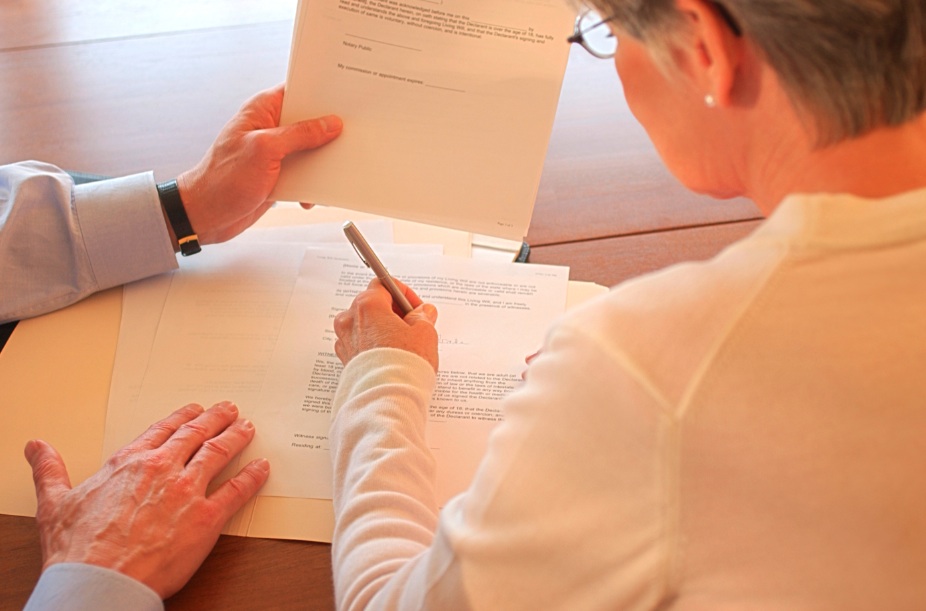
Submitted by Christopher P. Robinson; Robinson Funeral Homes
Although no one likes to think about it, dying is the one certain thing that will eventually happen to all of us. Are there really any good reasons to prepare in advance for this life event? Who benefits? What kind of preparation makes sense? And finally with whom should you prepare?
A few good reasons to plan in advance:
Control
Most of us believe we make better, sounder, decisions with a cool head. Emotions are bound to run high when death takes a close family member or friend. Do you really want your spouse or children to make the decisions that determine the cost of your funeral within hours of your death? Planning ahead allows you to control the type of service, your final disposition (burial or cremation), and the quality and cost of the products that will be needed to support the service and disposition you select.
Take a moment – close your eyes and visualize. Who will be sitting at the arrangement conference table with the funeral director a few hours after your passing? Will all of these people agree? Will they all have the same needs? Will the person in charge (usually your spouse, or oldest adult child) be the most verbal? Would your family benefit from knowing exactly what you wanted? For most of us the answer is a clear yes.
The type of ceremony you choose should reflect your values and beliefs, but it must also provide comfort to those you leave behind. A funeral professional can give you the guidance you need to make these important decisions.
Cost Savings
Planning in advance of need can also save you dollars. The cost of funerals, like bread, cars, and pretty much everything, tends to increase over the years. So while you are procrastinating, costs are rising. Many funeral homes offer inflation protection programs that allow you to eliminate the impact of inflation on your funeral cost.
The best time to complete your funeral plan is 3-5 years before retirement. That’s when advance preparation will save you the most money. If you missed that deadline, don’t worry. You can plan at any age, sooner is always better than later.
Options
Several choices are available to those who plan in advance that are not available at the time of death. When death occurs, not only will decisions need to be made within a short time frame but payment in full will also need to be made quickly. This may leave family members in a tough position while they wait for insurance claims or the estate to be settled. Most funeral homes will offer payment options when you choose to both plan and pay for your funeral in advance.
Who benefits?
You benefit. Your end of life remembrance will be just as you wanted, nothing more and nothing less. Your family benefits. They will have time to focus on each other, sharing memories, and making their own contributions to your service. They will not be trying to figure out what to do, debating with each other what should be done, or juggling finances.
What kind of preparation should you complete?
- Your plan should be written and on file at the funeral home of your choice with a copy retained with your next of kin.
- Preparation should include the tone and specifics of the gathering / service.
- If you plan to be cremated you should include guidance regarding the final disposition of the remains (buried, scattered, or retained).
- If you are to be buried, include the location of the burial.
- Your intentions for payment of costs associated with your plan should be communicated. Your preparation may or may not include funding with the funeral home program. Either way the choice is yours; however, it should be reflected in the planning documents so that there is no confusion at the time of your death.
With whom should you plan?
Wills are read after the funeral. Estates are settled after the funeral. Personal papers are reviewed and cleaned out after the funeral. Your funeral plan should be made with a funeral professional.
This professional should be willing to spend time with you learning about your thoughts, beliefs, family, and community connections. He or she should be willing to offer you professional advice about the best service options for you, your family, and your budget. If you didn’t wake up tomorrow morning, whom would your family call? That’s the place to start, call a funeral professional and ask for a no cost advance planning consultation.
Source: Candace Franco, C.P.C., B.S.N., M.H.A.
cfranco@theoutlookgroup.com



